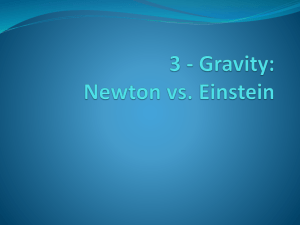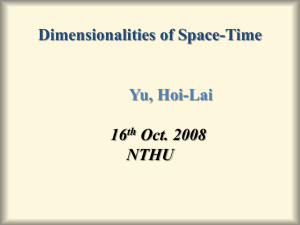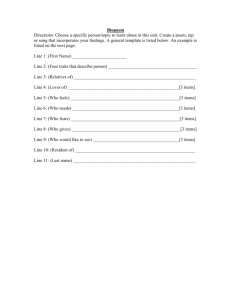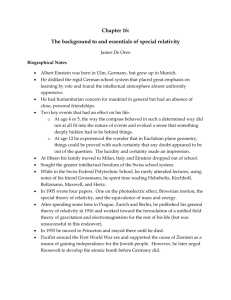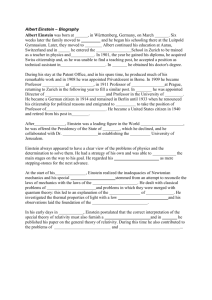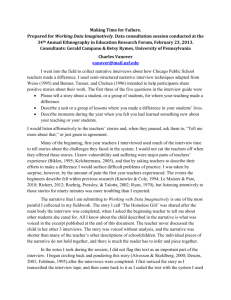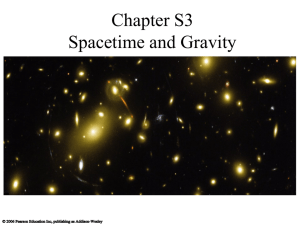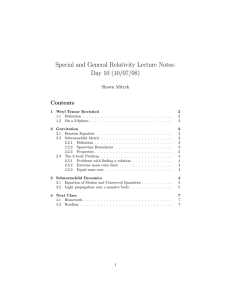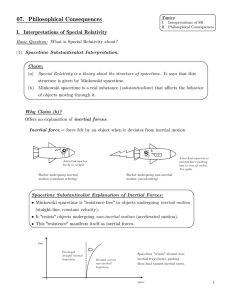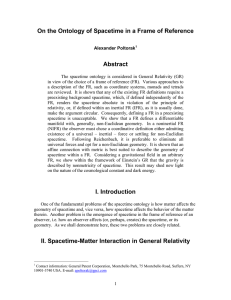Space and Time
advertisement
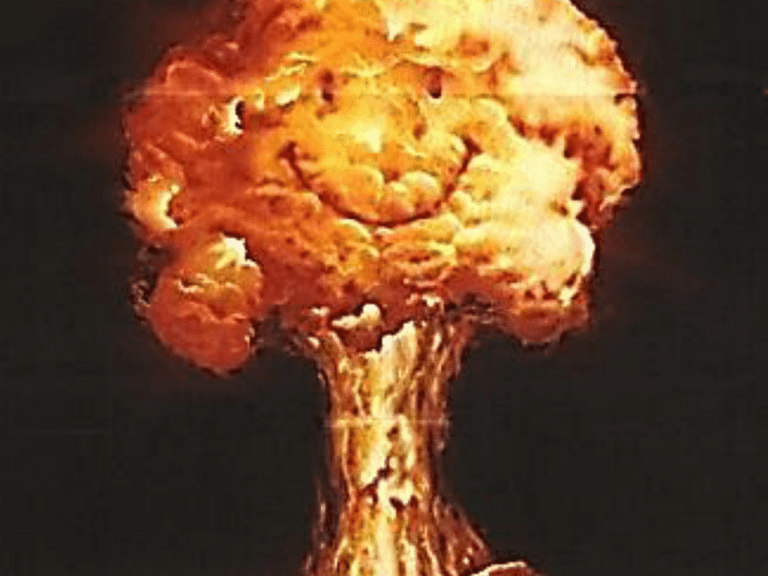
Preface Before I begin I would like to make a few points. First, Space and Time are different in many ways, but they do relate to each other and ,in a way, rely on each other. Time is quite difficult to explain and so is space…not because it is hard to comprehend but on the contrary, the only problem is that there are so MANY theories on it that you can’t really get a “Good” definition of either. Time and Space really are how YOU comprehend it to be. So with that said, please enjoy the presentation. By By Justin Vanover By Justin Vanover Justin Vanover What is Time? Time is known as many things, one is “Einstein’s Unfinished Revolution” some questions that vex us is, What causes time? Why time slows in gravity? Why time slows in motion? Is time a dimension? All unanswered questions and all that NEED answers, there are a few theories, well many to be exact, but few good ones. John Ellis McTaggart observed that historical evens have the same time characteristics as fictional stories. Ex. Fictional and historical events have the earlier then the later, and the past the present and the future. Meaning the past is more like a memory of events and being more of and imagination. Other people believe time is an infinitesimal. Meaning, the present may be an mental awareness of the recording in our brain, but say a person falls asleep during an event. They miss it completely and basically, that event does not exist in that persons past. Unless we can be consciously aware of an event it does not enter into our past memory, this also appeals to when we get lost in thought so to speak. As for the future, it is an projection, so to speak, of our past experiences in our memories. Some believe time is an emergent concept, which is, the process of motion and forces from which time emerges however what we consider to be time is an illusion. Our memory creates the illusion of the past. Conscious perception of events gives us the feeling of the present, the future is a mental construct patterned on memory experience of the past, concept of time emerges as our mind tries to make sense of the world around us that is constantly changing. Others believe time Is an illusion that suggests that only the present is real. (A, B, C analysis of time –John Ellis McTaggart) future events move into the present to move into the past and then moves further into the past. The measurement of time is quite simple, and is usually very easy to identify in every language. The time of day is measured by the position of the sun, and the months/years are the orbit of the earth around the sun (seasons). Position of Sun Orbit of Earth So, what exactly is time? Time is the presence of motion and forces and is caused by the expansion of space, in short that is. Another way of saying it, is that time is what you yourself feel what time is to be. Whether it be just another day tomorrow or a the second hand moving on the clock. It is what you percept it to be and whatever your imagination and thought brings it to be. “Procrastination is the thief of time.” -Edward Young What is space? Gottfried Leibniz, the German philosopher-mathematician, and Isaac Newton, the English physicist-mathematician, set out two opposing theories of what space is. They decided that space is no more than the collection of spatial relations between objects in the world,"space is that which results from places taken together". According to “The Principle of Sufficient Reason”, any theory of space that implied that there could be these two possible universes, must be wrong. Newton took space to be more than relations between material objects and based his position on observation and experimentation. In 1905, Albert Einstein published a paper on a special theory of relativity, in which he suggested that space and time be combined into a single construct known as “Spacetime”. Over the following ten years Einstein worked on a general theory of relativity, which is a theory of how gravity interacts with “Spacetime”. Instead of viewing gravity as a force field acting in “Spacetime”, Einstein suggested that it modifies the geometric structure of “Spacetime” itself. According to the general theory, time goes more slowly at places with lower gravitational potentials and rays of light bend in the presence of a gravitational field. Immanuel Kant described space and time as elements of a systematic framework that humans use to structure their experience. Ultimately, space is best described as the continuous extension in all directions in which all matter exists “Space is big. You just won't believe how vastly, hugely, mindbogglingly big it is. I mean, you may think it's a long way down the road to the drug store, but that's just peanuts to space.” -Douglas Adams By By Justin Vanover Justin Vanover Work Cited http://www.timephysics.com/what-causes-time.html http://www.whatisspace.com/ http://en.wikipedia.org/wiki/Space http://www.timephysics.com/

